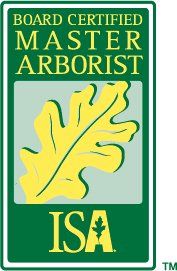Near death experiences and a the value of a culture of safety
Challenge
We were lucky that day that only my ego was hurt and the power company was able to come out and shut off the power to those lines and we were able to get the tree top free but if things had gone differently my friends may have had to do an aerial rescue or a body recovery that day. There is a great quote by Steven Wright “Experience is something you don't get until just after you need it.” and oh boy did I get some experience that day.
There were so many things that went wrong that day but ultimately I was uncomfortable doing what I needed to to get that tree down safely. I have replayed the events that led up to that mistake over in my head thousands of times and I knew before I made that cut that I shouldn’t have been in that tree because my level of skills and confidence weren’t where they needed to be that day. Ever since then I have always encouraged anyone who is unsure or not confident in what they are doing to just say no rather than make a risky decision that could endanger people or property. I even kept a charred branch from that tree on the dash of my truck for years as a reminder of what happens when safety is overlooked for the sake of production.
Our profession is one where nearly every tool we touch every day could result in injury or death if misused; from chainsaws, to wood chippers and even climbing gear. The potentially fatal consequences of small mistakes aren’t only in big trees next to power lines but in literally every aspect of our job.
Even small trees that seem relatively mundane still have the potential to end in disaster. A year or two before the power line incident we were pruning a small tree in a front yard with the dump truck and chipper adjacent to the tree we were working in. When climbing we use a rope which is tied in the top of the tree then to our harness and the rest goes down to the ground. The issue comes if a rope is inadvertently fed into a chipper. This seems like an obvious and avoidable scenario but occasionally an inattentive ground guy can make mistakes and a rope can be tangled with a branch and fed into a chipper. A wood chipper cutter wheel is about 18 inches in diameter and rotating at 4000 revolutions per minute. When a rope hits that cutter wheel it spools up around the drum at just under 350 feet per second. I would say you can only image what that would look like but fortunately there is a video of a dummy attached to a rope below so you don’t need to imagine it.
We were in the tree and I noticed our newer ground guy was hauling a large branch towards the chipper with the tail of my climb line caught up in it. I immediately started screaming and pleading at the new guy carrying the stick to stop but he couldn’t hear me through his ear protection and over the sound of the large diesel engine. I came to realize that he was not going to stop and as I saw the branch being fed into the chipper and my rope getting closer to the point of hitting the chipper drum so I prepared myself for what was to come. I used my secondary rope to tie myself off and disconnected from my climb line. The rope although no longer connected to me was still tied up in the top of the tree I was climbing so I braced myself for the rope to be pulled into the chipper and held on for the ride. Fortunately one of the other ground guys heard me screaming and reversed the feed wheels before my rope went in. This was yet another close call and an example of how inattentive and inexperienced people on a job site can be a threat to the safety of everyone else on site.
We talked to the guy and explained to him the potential consequences of what had just happened but once again he got the experience just after he needed it. Now I make sure to make it explicitly clear to every new hire what could happen and I show them the video to make it explicitly clear what can happen with a momentary lapse in attention
There are so many places where a small mistake can lead to massive consequences and I see it as my duty as a leader to share with everyone I can the mistakes i’ve made in hopes that it will prevent anyone else from having to learn these painful lessons on their own. The way I see it is there are two ways to learn either from your own mistakes or from the mistakes of others around you. After hearing these stories you may be thinking that I'm clearly not the guy you would want working near your house. The truth is that a majority of arborists have similar stories, I just feel like the value of sharing my stories is worth the abuse to my ego.
Ultimately the issue I see is that the company I was working for didn't value the safety of their employees and my stories are just a few of the numerous serious accidents that occurred. There are some tree companies that have been in business for over a decade with relatively few injuries and there are some where their employees just continuously are getting hurt. The difference between these companies is the culture and values. Some companies do very little safety training and always pressure their employees to get more done in less time and others make sure to give their employees plenty of time to make sure the job gets done properly and safely. The reality is that when you break down most accidents in this industry they can usually be attributed at least in some part to a lack of training or careless mistakes made by overworked employees.
I have friends who have lost the tips of their fingers, been knocked unconscious by branches, or cut themselves with chainsaws. It may seem like these types of injuries are just par for the course in this profession but the reality is that they occur at far greater frequency at some workplaces than others. I encourage anyone on my crew to let me know if they have any concerns or fears about anything we are doing and making sure they know that they always have the right to say they don’t want to do anything for any reason. There is always another way to get a job done and you can always get a bigger crane or use different techniques to minimize risk. I have been on job sites where I felt obligated to do things I didn’t think were safe or that I didn’t feel comfortable doing and I refuse to ever put anyone else in that position.
Ultimately it comes down to whether or not the ownership and leadership of a company truly value the safety of their employees over profits and some companies don’t seem to and their track records on safety prove it. I have worked for many companies and talked to many of my peers and I can say that although most people would say that they care about the safety of their employees their actions don't align with their words. Ive heard too many stories of guys saying they don't feel comfortable with what they are being told to do and their supervisors either shame them or scold them for "not doing their job". Our industry is always ranked first or second in terms of job site deaths per capita. I see it as my duty to create a culture that encourages backing down when things just don't feel right.
There are two audiences who will read this and i hope that each takes something of value from this. The first and most important for me is in the hopes that another tree person reading this will see these stories and learning from my mistakes will prevent them from having an accident. I also hope that other leaders in this industry or others will see this and hopefully it will encourage them to make better decisions when it comes to training and encouraging a culture of safety.
The second reason I share these is to explain to the non tree folk the risks that are inherent in the work we do and help them understand why this work is so expensive. The truth is this work is incredibly hard on our bodies when everything goes right and the potential for things to go horribly wrong is ever-present
The thing about safety culture is that it takes a lot of effort and time to make sure we mitigate our job site risks as much as possible. The funny thing about well managed risk is that it makes the risks hard to perceive. Think about driving a car, going slow and abiding by all of the rules and regulations seems obvious and when everyone is doing their part it almost makes it feel like the risk isn’t even there even though for most people it is the most dangerous thing they do all day. The difference is that in a tree there aren’t road signs, speed limits, and stop lights to tell us what to do. This means that the crew must make judgement calls to ensure the safety of everyone around them. Sticking with the car analogy its important to keep people who are learning in parking lots and off of a snowy mountain pass. Its not that snowy mountain passes can’t be navigated safely but it is important that you are well equipped with snow tires and four wheel drive and well trained to make sure that you don’t slide off the edge.
The other day I saw this posted on an arborist Facebook group
These statements really show a lack of understanding of what goes into our jobs and it's honestly a little offensive when I see people make remarks like this. Just because we didn't spend years in college does not mean that we are not highly skilled and extremely educated in our field. The reality is that our insurance rates are astronomical, our equipment is extremely expensive and when it breaks down things are absurdly expensive to fix. I understand the level of other peoples education and skills and their value and I just ask that everyone else do the same for mine.
Often people would rather equate what we do to landscapers or other similar trades but the reality is that there is so much more that goes into what we do and keeping our guys safe. We aren’t just pushing lawn mowers around a yard and the consequences of our mistakes are massive. Everyone on my crew is made fully aware of what they are getting into and even though we are all living out our childhood dreams of climbing trees for a living does not mean that we should not be adequately compensated for the work we do. This work is extremely dangerous and the people who put their health and safety on the line every day to keep your property safe deserve to be compensated fairly.
As arborists we understand the risks of the work we do. We do it because we love the work and the value it brings into our lives and the lives of our customers makes it worth it. Trees are not only beautiful but they also provide so many benefits to everyone who gets to be in their presence. Despite their beauty trees can be extremely dangerous and I have gone down assist in the recovery after hurricanes and seen first hand the destructive potential they can cause. I have seen houses crushed by trees and heard horror stories of people inside while trees crash through their roofs. The work we do is essential to anyone who wishes to coexist with trees but the risks involved with what we do are massive. The next time you get a quote from a tree service please don't scoff at the bid and just understand that we don't like that it is so expensive but its the unfortunate nature of the work we do. The truth is despite the high prices we are forced to charge very little actually ends up in our pockets and if you knew my living situation and could see my bank account you would understand that we are not making a killing off of our work. This is a labor of love for almost everyone I know in the industry and we are truly doing our best to provide high quality service for a reasonable price but the truth is that even though the cost is high most of that money ends up going to workers comp, employees, taxes, and equipment.

















